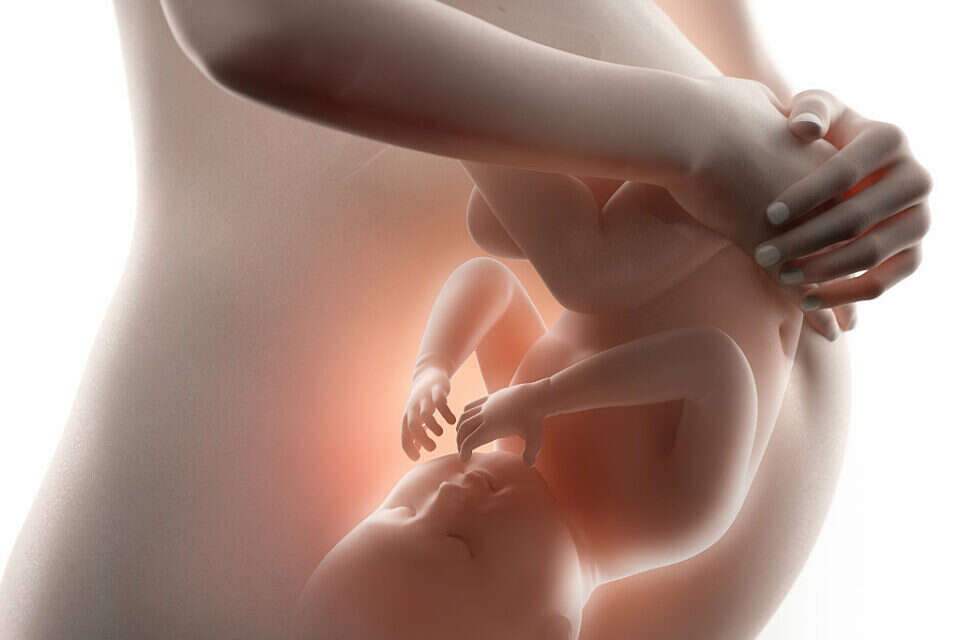The exchange of embryos that took place at the Asuta Medical Center in Rishon Lezion, when an embryo that was not hers was returned to the mother's body, raised many questions regarding the supervision and treatment processes at the IVF in vitro fertilization clinics scattered throughout the country.
Many couples, whose every desire is to embrace a child, invest a lot of resources in choosing the optimal medical team alongside the best medical institution to perform the procedure, where the key parameter for the couples is the index of the percentage of success in conceiving and giving birth.
But despite the thoughts on this - many do not attach importance to the quality of the processes in the medical institution, in everything related to the prevention of mistakes of changing test tubes and wrong treatment.
Jewish law attaches great importance to the supervision procedure and accuracy in this kind of treatment, since errors in this matter have consequences for many issues such as parentage, bastards, religious affiliation (Jewish or Gentile), sibling marriages, the parent's relationship to his parents - and accordingly the obligation of the mitzvot and procedures between parents and their children , such as inheritance, the mitzvot of honoring father and mother and more.
In light of the complexity and mishaps that sometimes occur in Israel and around the world, private philanthropic associations have been established over the years, such as the Poa Institute (fertility and medicine according to Halacha), which provide professional and medical supervision services, which include the accompaniment and presence of a supervisor who is knowledgeable about the process and who physically joins the medical and embryological team during the procedures The medical and invasive ones - such as egg retrieval, sperm cell enhancement processes and their return, as well as supervision during the process of embryo return. Some of these institutes even have arrangements with the health insurance funds.
In addition, to prevent mistakes, each test tube goes into a unique and dedicated container that is locked with an additional "plumber" of the supervising association, and which is opened only to the eyes of the supervisors and after accurate documentation and signing of an orderly protocol.
This method of operation is an acceptable and worthy solution in many opinions in Judaism to a large part of the concerns that can arise, as mentioned, from a malfunction in the process.
There is utmost importance in defining standards of quality and control during pregnancy, photo: Getty Images
It seems that on the essential-halachic level the reference to the event that took place in Assuta is as a reality of a surrogate mother, an issue around which the discussion is constantly renewed according to the scientific and technological developments.
In addition to the biological and religious questions regarding parental kinship, there are also complex monetary issues as a result of such an event: Is the baby that has been genetically determined not to belong to the mother who is raising him in her womb condemned as lost, and therefore the mother has a moral and ethical obligation to do everything in her power to find the The biological mother?
In contrast to adoption or egg donation, in this case the fertilized embryo did arrive by mistake to the surrogate mother and was lost to the biological mother, when there are clear signs that make it possible to verify the identity of the biological mother, which is a necessary step in order to compel the originator to return the loss.
On the other hand, many embryos are often created in the laboratory and frozen in test tubes during the fertilization process.
Sometimes, after a woman has had several children, she decides not to pursue the attempt to return more embryos, and thus it turns out that embryos, eggs and sperm cells remain unclaimed for years and are forgotten in laboratories.
If it is such a fetus, the biological mother may not even remember its existence.
Would it be possible to say that this law of loss is a law of loss that the owners have given up on?
Another question relates to the monetary assessment of the loss, since technically a loss that requires restitution is one that is worth more than a penny, but here it is an embryo consisting of four to eight cells and does not appear to be unarmed - is it possible that this is something that is not really there?
And in general, what is the definition of the law regarding the cells of the human body?
Are they the private property of the person or once they are separated from him they are already public property?
Assuta Rishon Lezion Hospital, photo: Yossi Zeliger
Extracting DNA from cells is now a simple laboratory method to apply.
Structured laboratory methods are called "protocols", and they are very similar to cooking recipes in the kitchen, in that they specify for the laboratory researcher which substances he must add, in what quantity, and what he must do at each step.
In one of the countries in Western Europe, the court is discussing a claim for genetic research done by collecting cells that leave people unaware during medical treatments, as well as hair and other parts of skin from which DNA can be extracted when needed for research purposes.
According to the Davidson Institute, to extract DNA, you take a piece of tissue or a cell culture from which you want to extract the DNA (blood, skin, seminal fluid, a piece of meat, a leaf of a plant, etc.), freeze it in liquid nitrogen and crush it into a powder. Passed through a series of syrcosis operations (use of a centrifuge machine) to separate the different parts of the cell and leave the contents of the cell nucleus, which contains the DNA. At the end of the process, a transparent and viscous test tube remains, containing the DNA extracted from the cells.
If so, DNA is not an ethereal entity but a material for everything, and can be held in the hand or preserved in a test tube.
However, the court considered that since it is something that is not real and does not harm the individual and his property and is not personally identified with its source, it is permissible to use those cells and remains of the human body that were knowingly and unknowingly "abandoned" by their owners.
In this case, it seems that an embryo is an important asset, even though it is not visible to the eye, as many eagerly await the success of fertilization, when the high cost of the process embodies its value and worth.
The Gemara in tractate Baba Batra discusses the reality in which a person does work in his friend's yard to improve his friend's field without being asked.
This law is called in Halacha "the one who goes down to his neighbor's field."
The Gemara rules that if it is an action that did improve the field, it will be possible to force the owner of the yard to pay the expenses of the improvement if he benefits from it.
At the end of the pregnancy period, can the mother who raised the baby sue the biological mother for the claim of improvement expenses for the birth and the pregnancy period, on the part of "Yorad to his friend's assets"?
This question requires expanding the canvas on emotional and monetary processes, in order to allow a budgetary quantification of the expenses and a clear monetary decision on the matter.
The many additional questions resounding following the event of the exchange of embryos in Asuta, constitute an opening for halachic, ethical and legal discussions, but mainly sharpen the need for professional and high-quality supervision services in such sensitive processes, to prevent such mistakes in the future.
were we wrong
We will fix it!
If you found an error in the article, we would appreciate it if you shared it with us











